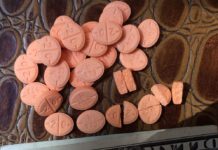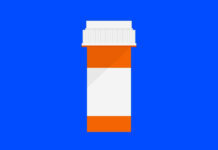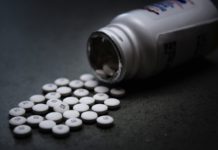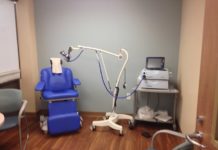“New Depression Meds Not Effective Generally, But Drug Companies Insist Otherwise: Study”
The International Business Times covers a new study showing “trials for new antidepressant medications may not be applicable to the population at large.” “The finding, published in the Mayo Clinic Proceedings, shows recent trials are less generalizable than the prior studies, as researchers excluded most depressed patients from drug company-sponsored treatment studies.”
Psychologist Rethinks Psychotropic Medications, Calls for Renewed Dialogue
Psychologist and Professor Amber Gum has published the story of her personal journey of rethinking psychotropic medication in a special issue on "The Politics of Mental Health" in The Journal of Medicine and the Person. Influenced by Mad in America and the work of Robert Whitaker, Gum became aware of evidence that “suggests that psychotropic medications are less effective and more harmful than most believe” and now hopes to encourage other mental health professionals and researchers to engage in open-minded, critical self-assessment of standard practices.
Study Shows Clozapine Can Result in Serious Gastrointestinal Complications
A large observational study published in CNS Drugs sheds light on serious adverse effects of the ‘gold standard’ antipsychotic Clozapine.
CDC Reports Increased Psychostimulant Prescriptions in Women of Reproductive Age
Psychostimulant prescriptions have increased by 344% (from 2003 to 2015) for women of reproductive age (15-44 years old).
Members of FDA Advisory Committee Offer Perspectives on Flibanserin Approval in JAMA
In the September issue of The Journal of the American Medical Association (JAMA) three FDA advisory committee members describe the convergence of factors that made the committee’s recommendation to approve flibanserin especially challenging and politically charged.
‘Do Antidepressants Work?’ is the Wrong Question
“This research points to the inadequacy of asking the simple question: ‘Do antidepressants work?’ Instead, the value or otherwise of antidepressants needs to be understood in the context of the diversity of experience and the particular meaning they hold in people’s lives.”
Opioids May Cause Depression and Worsen Chronic Pain
“Converging lines of evidence now suggest that depression—a common comorbidity in the setting of chronic pain—may in some patients represent an unrecognized yet potentially reversible harm of opioid therapy.”
Reanalysis of STAR*D Study Suggests Overestimation of Antidepressant Efficacy
Reanalysis of the original primary outcome measure in the STAR*D study suggests STAR*D findings inflate improvement on antidepressant medication and exclusion criteria in conventional clinical trials results in overestimation of antidepressant efficacy.
“6 Hospitalized, One of Them Brain-Dead, After Drug Trial in France”
Six men were hospitalized and one was pronounced brain dead after participating in a phase 1 clinical drug for a mood, anxiety, and motor dysfunction drug manufactured by Bial and administered by Biotrial. Carl Elliott, a bioethicist at the University of Minnesota, said investigators should look into questions like how much the men were paid and whether they properly consented to the trial. “Many Phase 1 trial volunteers are poor and unemployed, and they volunteer for trials like this because they are desperate for money,” he said. “This means they are easily exploited.”
Transcranial Electrical Stimulation Can’t Directly Alter Brain Patterns, Researchers Find
Due to the thickness of the scalp and skull, transcranial electrical stimulation (TES) is incapable of targeting networks of neurons in the brain.
Meta-Analysis Ties Gray Matter Loss to Antipsychotic Dose
Antipsychotics are currently the predominant treatment for individuals diagnosed with schizophrenia, but there is an accumulating body of research that links the use of these drugs to structural abnormalities in the brain. A recent meta-analysis suggests that gray matter loss in the brain may depend on the dose and class of the antipsychotic.
Many Physicians Don’t Understand Key Facts about Prescription Opioid Addictions
A Johns Hopkins Bloomberg School of Public Health survey of 1000 US primary care physicians found that many do not understand basic medical facts about the addictive nature of the opioids they are prescribing.
Opioid Use in Pregnancy Dangerous and Understudied
Nora Volkow, the director of the National Institute on Drug Abuse (NIDA), authored an editorial for BMJ this month warning that the opioid abuse epidemic could have dangerous consequences for pregnant women. While the effects of opioid exposure on the developing brain are yet unknown, research suggests that infants may suffer from withdrawal syndrome, nervous system defects, and impaired attachment with the mother.
Major Review Finds Antidepressants Ineffective, Potentially Harmful for Children and Teens
In a large review study published this week in The Lancet, researchers assessed the effectiveness and potential harms of fourteen different antidepressants for their use in children and adolescents. The negative results, familiar to MIA readers, are now making major headlines.
Scientists Call for Increased Transparency in Research
Scientists at the Yale Collaboration for Research Integrity and Transparency (CRIT) published a new policy paper this month criticizing the current state of biomedical research and calling for improved transparency in research methods.
Effort to Tackle Overuse of Antipsychotics in Older Adults Backfires
A partnership designed to decrease antipsychotic use in elderly patients may have led to increased use of medications with even worse risk/benefit profiles.
Paxil Linked to Birth Defects, Cardiac Malformations
According to the CDC, January is National Birth Defects Prevention Month. New research continues to link various SSRI antidepressants with birth defects and neurological abnormalities in newborns. The latest study to examine this topic, a meta-analysis led by Dr. Anick Bérard, found a 23% increased risk for birth defects, and a 28% increased risk for heart problems, in the infants of women who took the SSRI Paxil (paroxetine) during their first trimester.
“Why Are So Many Children on Antipsychotic Drugs?”
“Do they make people less aggressive? Yes, sometimes they do. Will they sedate people? Absolutely. Will they make kids easier to manage? They will,” Robert Whitaker tells Liz Spikol for Philadelphia Magazine. “But I know of no study that shows that medicating these kids long-term will help them grow up and thrive. The developing brain is a very delicate thing. The narrative is that these side effects are mild, and that’s just not true, and that the benefits are well-established, and so often they’re not.”
How ‘Premenstrual Dysphoric Disorder’ was Created by Pharma
For MinnPost, Susan Perry discusses that the pharmaceutical industry played in the creation of the ‘mental disorder’ known as premenstrual dysphoric disorder or PMDD....
Researchers Ask, ‘Why Do Antidepressants Stop Working?’
An international group of researchers, including several with financial ties to manufacturers of antidepressants, explore possible explanations for why long-term users of antidepressants become chronically depressed.



















